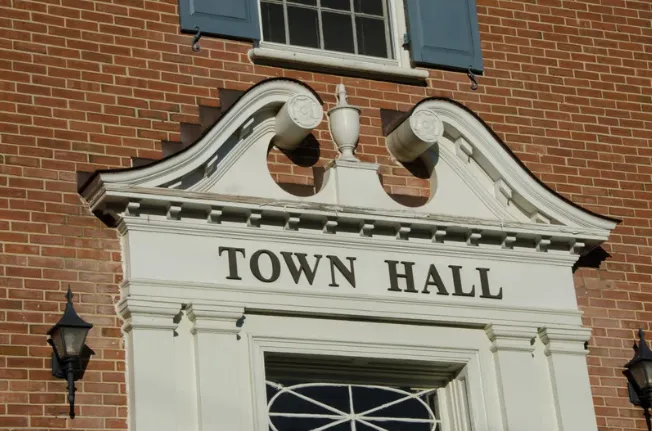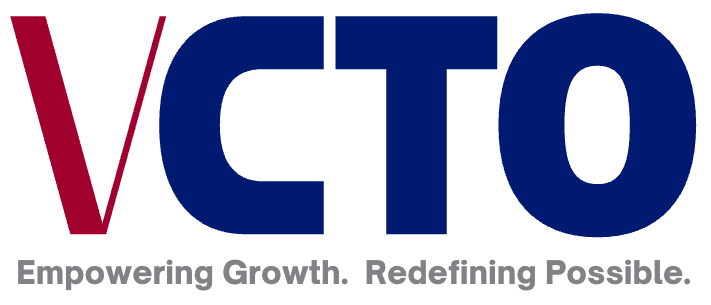
The Role of Government in Small Business
When we think about the factors that shape small business success, we often focus on things like market demand, customer experience, operational efficiency, and innovation. Yet there’s another powerful force at play that doesn’t always get the attention it deserves: government. Whether through licensing and permitting, funding programs, public procurement, or disaster response, government can either be a lifeline—or a bottleneck—for small businesses.
For entrepreneurs trying to scale or simply stay afloat, understanding how government intersects with business is not optional. It's essential. The public sector plays a foundational role in shaping the ecosystem in which small businesses operate. Sometimes that role is supportive and empowering. Other times, it creates barriers that feel insurmountable. But either way, it’s there—and ignoring it can cost you time, money, and opportunity.
A Double-Edged Sword: Enabler and Gatekeeper
Government is both enabler and gatekeeper. On the enabling side, there are countless programs designed to support small businesses: grants, low-interest loans, technical assistance, and access to public contracts. On the gatekeeping side, the path to launching or growing a business is often riddled with red tape—complex permitting requirements, regulatory hurdles, and slow-moving bureaucracies.
Navigating this can be frustrating. A simple business license application might involve coordination between multiple departments. Inconsistent information from city or county offices can delay critical steps in your startup journey. And outdated systems often mean forms must be submitted in person, manually reviewed, and sent through inefficient workflows.
Yet behind those inefficiencies are opportunities. Many local governments are working to simplify and digitize permitting processes, reduce wait times, and make systems more accessible to first-time business owners. The businesses that succeed in these environments are often those that take time to understand how their local government works, build relationships, and advocate for their needs.
Government as First Responder: Disaster Recovery for Small Business
When disaster strikes—whether it's a hurricane, flood, fire, or pandemic—small businesses are often hit the hardest. Unlike large corporations, they typically lack the reserves, insurance protections, and recovery infrastructure needed to weather the storm. That’s where government plays a vital role.
Local and federal agencies can be instrumental in post-disaster recovery, providing financial relief through emergency grants, bridge loans, and rent support. But recovery isn’t just about money. It's also about resilience. Governments can support smarter rebuilding through guidance on infrastructure improvements, emergency planning resources, and community-level recovery strategies.
The businesses that fare best in a crisis are those that are plugged into these systems before the storm hits—those who already know who to call, where to apply for aid, and how to document their losses. Building relationships with emergency management offices, chambers of commerce, and small business support networks ahead of time can dramatically improve response and recovery outcomes.
Leveling the Playing Field: Inclusion and Economic Equity
One of the most important roles government plays is in leveling the economic playing field. Through targeted programs, it can help minority-owned, women-owned, veteran-owned, and disadvantaged businesses gain traction in markets that may otherwise be closed to them.
This can take the form of certifications that make businesses eligible for public contracts, as well as set-aside procurement opportunities that reserve a portion of government spending for small and disadvantaged enterprises. Local governments often pair these opportunities with training, technical assistance, and matchmaking events to help business owners navigate the procurement process.
However, access remains a challenge. Many small business owners don’t know these programs exist, or don’t understand how to apply. The most successful government support programs invest in outreach and education—going into underserved communities, speaking in plain language, and walking business owners through the process step by step.
Governments can also influence private sector behavior by tying funding or tax incentives to supplier diversity benchmarks, further expanding opportunities for inclusive growth.
Funding the Dream: Capital Access and Financial Support
Capital is the fuel that drives small business growth, and government plays a pivotal role in expanding access to that fuel. While traditional lenders often require established credit histories, collateral, and strong cash flow, government-backed loans and grant programs are specifically designed to serve riskier or earlier-stage entrepreneurs.
Programs like SBA 7(a) loans, microloans, and Community Development Financial Institutions (CDFIs) offer small businesses more flexible financing options. These tools can help fund equipment purchases, hire staff, cover working capital, or even support expansion into new markets.
Grants—whether through federal programs, economic development agencies, or local innovation funds—offer another important funding stream. Some of these grants focus on underserved areas, innovation, clean energy, or export growth. Others are tied to industry development or job creation goals.
Importantly, financial support should be paired with guidance. The best funding programs offer technical assistance to help business owners develop financial strategies, understand compliance requirements, and avoid misuse of funds. Capital without strategy can create risk. But capital with a clear plan? That can unlock transformation.
Innovation and the Evolving Role of Government
While government is often seen as slow to adapt, that narrative is beginning to shift. Across the country, public agencies are experimenting with ways to modernize services and partner with entrepreneurs.
Digitization is a major driver of this shift. From online business licensing portals to AI-powered chatbots for permit questions, local governments are making real strides in becoming more business-friendly. Some cities are investing in open data platforms that allow entrepreneurs to analyze local economic trends, identify real estate opportunities, and target customer demographics more effectively.
There’s also a growing trend of governments investing directly in the innovation economy. Public-private partnerships, incubator programs, and municipal innovation funds are becoming more common. These efforts aim to position government not just as regulator, but as co-creator—working alongside the business community to solve problems, launch new initiatives, and drive local prosperity.
Making It Work: What Small Business Owners Can Do
For business owners, the takeaway is clear: don’t treat government as an obstacle to avoid. Treat it as a system to engage.
Start by learning who your local business advocates are—economic development officials, small business liaisons, city commissioners, or procurement teams. Subscribe to newsletters. Attend workshops. Show up to community forums and roundtables. These aren’t just bureaucratic checkboxes—they’re chances to influence policy and access support.
Make sure your business is certified if you qualify for small, minority, or women-owned business programs. Look into procurement portals. Explore SBA resources. Keep emergency preparedness plans updated and aligned with local disaster response guidelines.
And perhaps most importantly, share your story. Government often moves slowly because it lacks real-world feedback. When small business owners speak up—about what’s working, what’s broken, and what’s needed—government programs improve.
The relationship between small businesses and government is complex. It’s filled with friction, but also rich with opportunity. Those who take the time to understand the systems, build the relationships, and access the resources are more likely to survive shocks, scale sustainably, and even shape the business landscape for others.
The best entrepreneurs aren’t just builders. They’re navigators. They know how to move through the maze, spot opportunities in unlikely places, and use every available resource—including government—to fuel their mission.
Government isn’t going anywhere. But how you engage with it? That’s completely within your control.



